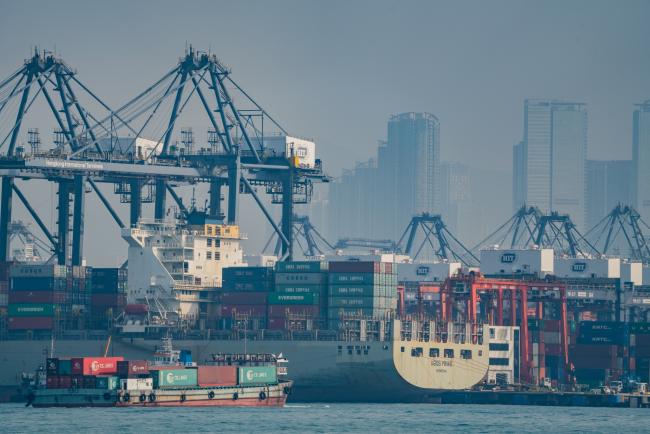(Bloomberg) -- China’s exports fell in April and imports rose, before the abrupt turn in the trade talks that has led to a re-escalation of the dispute with the U.S.
- Exports dropped 2.7 percent in April, while imports expanded by 4 percent last month, leaving a trade surplus of $13.84 billion, the customs administration said Wednesday.
- Economists forecast that exports would tick up by 3 percent while imports would slip by 2.1 percent.
Key Insights
- “The lackluster exports show that the global economy probably hasn’t bottomed yet, while the imports signal recovering domestic demand,” said Peiqian Liu, Asia strategist at Natwest Markets PLC in Singapore. “The noise and uncertainties in the trade war will continue to weigh on China’s trade.”
- The trade surplus with the U.S. in the first four months of 2019 expanded 10.5 percent from the same period in 2018 to about 570 billion yuan ($84 billion). There was no single month figure in the data
- The Shanghai Composite Index continued to rise after the data was released, erasing earlier losses to trade unchanged at 11:27 a.m. Overnight money market rates continued declines on Wednesday, dropping to levels last seen in mid-2015.
- Trade talks have been in turmoil since President Donald Trump’s surprise announcement on Sunday that he planned to raise tariffs on $200 billion of Chinese imports to 25 percent from 10 percent because talks were moving too slowly. He also threatened to impose duties "shortly" on all other goods not already tariffed
- China’s top trade negotiator, Vice Premier Liu He, will still visit the U.S. for talks, the Ministry of Commerce announced on Tuesday, although the government initially considered delaying that trip
- On Monday, the PBOC said it will cut the amount of cash some banks must hold as reserves, timing the announcement to help shore up domestic financial markets hit by the renewed trade uncertainties
Get More
- “For 2019, a full-on trade war with the U.S. would mean China’s GDP growth will likely fall below 6 percent without the government increasing its current stimulus measures significantly,” UBS AG economist Tao Wang wrote in a note on Tuesday. “The Chinese government will increase policy stimulus if trade war escalates, shifting its macro policy stance again to more of an easing bias, deviating from the more balanced signals sent from the latest Politburo meeting.”
(Corrects period of trade surplus with U.S. in fourth bullet point.)
